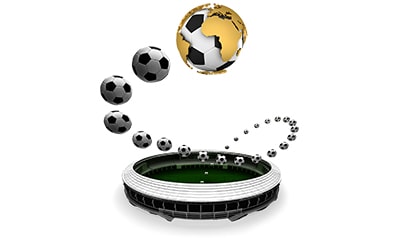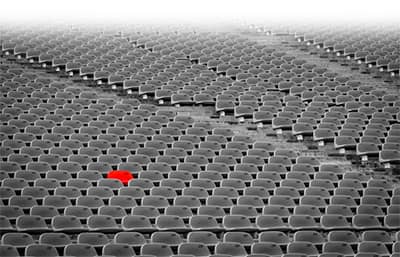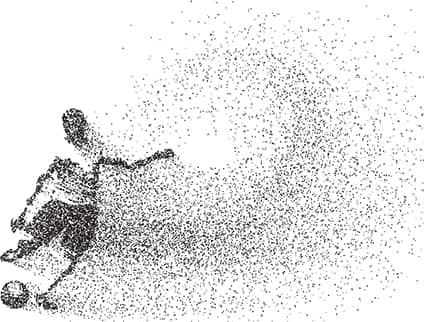FIFA; before and after Electing Court of Arbitration for Sports
 Introduction
Introduction
Fédération Internationale de Football Association (FIFA) was founded in 1904 to supervise international football competitions, with its headquarters in Zurich. FIFA now has 211 national associations as members and is divided into regional confederations: Asia, Africa, Europe, Oceania, South America and North & Central America and the Caribbean. While FIFA funds its member nation associations financially and logistically, they in return are obliged to abide by the rules and regulations set out by FIFA to promote smooth administration of the sport. One of FIFa’s main duty is to oversee the execution of different competitions, international and regional, and to promote the same. It actively runs the sport and works towards developing the game worldwide.
Needless to say, the commercialisation of the sport has also opened a window for a number of disputes that arise, not only between player and their countries but also disputes in each game. There was a need for a uniform set of rules and regulations governing all the national associations and hence a judicial body to attend to all the disputes that arise therein.
This guide articulates the dispute resolution method followed by FIFA. It also highlights the independence of the Court of Arbitration for Sports (CAS) in giving unprejudiced and unbiased decisions.
Governing bodies of FIFA
FIFA has three judicial bodies: the Disciplinary Committee, the Appeal Committee and the Ethics Committee. Each has certain powers with limitations to govern the sport of football and all the disputes that ascend. Whether it is sanctioning serious infringements which have escaped the match officials’ attention, extending the duration of a match suspension, rectifying evident mistakes or pronouncing additional sanctions like fines, the FIFA Disciplinary Committee is authorised to sanction any breach of FIFA regulations which presumably does not come under any of the other jurisdictions. The Appeal Committee essentially looks into deciding appeals against the decisions of the Disciplinary Committee. There are certain decisions of the Disciplinary Committee that are final and are not subject to appeal; except for such decisions to which an appeal is not allowed, the Appeal Committee may decide upon the merits of the case whether an appeal to a decision must be granted or not.
FIFA recognises the jurisdiction of CAS
Initially, FIFA wished to establish a completely independent arbitration tribunal, Arbitration Tribunal for Football (TAF), to settle all the football-related matters. This tribunal was uniquely meant to have its own infrastructure as well as administration, funded by FIFA. To establish TAF would haveve been time-consuming keeping in mind insufficient funds and hence, the lack of professional support to inculcate the FIFA regulations in it. In a following meeting f, the Executive Committee of FIFA asked the President of FIFA to evaluate alternative means for quick dispute resolution arrangement that would facilitate similar results and purpose as TAF.
There were deliberations between FIFA and the International Council of Arbitration for Sport (ICAS), which is the governing body of Court of Arbitration for Sports, the result of which was a formation of a list of learned arbitrators specifically for football-related matters in tune with the FIFA regulations. The agreement signed between the two established that FIFA recognised the jurisdiction of CAS in November 2002. Hence, since CAS is the official body to deal with the appeals against decisions of FIFA’s judicial bodies, except the matter where the appeal was not allowed, it follows the same procedure as it does for other disputes it takes cognizance of. ICAS decides the list of arbitrators to decide football-related matters and after the agreement, it decided to nominate a uniform way of electing the arbitrators. It is indubitable that CAS’ jurisdiction being recognised by FIFA was a step further towards ensuring that the spirit of the sport is maintained to promote fair competition.
Court of Arbitration for Sport
 It is fair to presume that a specialised system for dispute resolution of every field is more reliable than a general dispute resolution system. Arbitration being an established yet developing aspect of dispute resolution is efficient, considering it is faster and the parties get to pick their arbitrators. The birth of CAS supported the same idea and it was believed that sport-related disputes needed to be handled independently to ensure specialised and accurate results in a fast track manner. To take these matters out of the national courts and bring them in front of a specialised sports tribunal proved to be a quick and reliable method of dispute resolution. Ever since CAS’ inception, it has been globally regarded as the supreme body to deal with all matters related to sports. It is funded by ICAS and hence its independence from ICAS and other authorities have always remained a topic of debate. It was a historic and crucial step by FIFA to recognise this esteemed institution to hear appeals for all football-related matters.
It is fair to presume that a specialised system for dispute resolution of every field is more reliable than a general dispute resolution system. Arbitration being an established yet developing aspect of dispute resolution is efficient, considering it is faster and the parties get to pick their arbitrators. The birth of CAS supported the same idea and it was believed that sport-related disputes needed to be handled independently to ensure specialised and accurate results in a fast track manner. To take these matters out of the national courts and bring them in front of a specialised sports tribunal proved to be a quick and reliable method of dispute resolution. Ever since CAS’ inception, it has been globally regarded as the supreme body to deal with all matters related to sports. It is funded by ICAS and hence its independence from ICAS and other authorities have always remained a topic of debate. It was a historic and crucial step by FIFA to recognise this esteemed institution to hear appeals for all football-related matters.
CAS was established in 1984 and is headquartered in Lausanne, Switzerland, though it has offices in Sydney, Abu Dhabi, New York, to name a few. CAS’ independence has always been in question and a landmark judgement by the Swiss Supreme Court [Arrdts du Tribunal Fdd6ral Suisse [ATF] 119 271 (Switz.)] established CAS’ independence, largely gave a seal of approval to CAS and the attention was drawn to the disputed biased links between CAS and IOC. Consequently, the organizational structure of CAS was altered to create a governing body to maintain the internal functioning of the tribunal in a uniform manner and to amend the rules of CAS in accordance with the procedure followed. Further in 2003, CAS’ independence from IOC was confirmed once again by the Swiss Federal Tribunal in [ATF] 129 445 (Switz.), where it held CAS as the “true Supreme Court of world sport” and emphasised on CAS’ independence and unbiasedness from IOC, deeming it to be a court of arbitration whose decisions were regarded to be at par with that of the state court.
CAS follows a set of rules enumerated in the Code of Sports-related Arbitration and Mediation Rules like the procedure to be followed. There are different subcategories within CAS to deal with several types of sports-related issues and in this case, subcategories of issues arising in competitions organised by FIFA:
- Ordinary Arbitration Procedure which takes cognizance of issues of the first instance. These are basic arbitrary issues, like those arising in broadcasting rights, licensing and sponsorship contracts.
- Appeal Arbitration Procedure which as the name suggests, governs appeals against the judgments passed by different sports bodies. Issues like player transfer, compensation or disciplinary sanctions come under this category.
- The Ad hoc Division is basically a panel of arbitrators available throughout major sporting events to quickly resolve disputes arising therein to speed up the procedure considering the length of the tournament or the games. During FIFA World Cup, or the Olympics for example, a panel of arbitrators is available on call to resolve any sports-related issues that arise during the games that can be quickly dealt with to ensure it does not hinder the game in any way, or cause any stoppage to the same.
- Mediation is another dispute resolution method that is offered to parties before they can decide whether they want to resolve the issue by arbitration or mediation.
CAS has a pool or closet of in-house arbitrators who come from culturally diverse backgrounds and countries, well versed and learned about the rules and regulations of the sporting world, which couples with the goals of CAS in the first place, to offer a specialised dispute resolution forum. The knowledge of rules and regulations is parallel to the knowledge of the laws needed from the judge in a state court, for example, to ensure that disputes are dealt with amicably and with the most efficiency.
What is essential in being able to file an appeal against any sporting authority is that they must have expressly mentioned in the contract that disputes would be resolved by arbitration and the respective national association must recognise CAS’ jurisdiction for the same. Debates ran around the concept of having a select set of arbitrators in CAS and whether players were restricted from being able to take their case to national court should they doubt the unprejudiced procedure of dispute resolution by CAS. Signing a contract with a club which in its dispute resolution mechanism recognises CAS’ jurisdiction limits the option of a player being able to go to a national court, leaving him no choice but to either sign the contract with the club accepting CAS’ jurisdiction without a choice, or not be able to sign with them at all. The Swiss Federal Court’s take on the abovementioned statement in Apr. 18, 2011, 4A 640/2010 (Switz.) was that:
[t]he arbitration clause must meet the requirements of Art. 178 PILA. However, the Federal Tribunal reviews the agreement of the parties to call upon an arbitral tribunal in sports matters with some 'benevolence'; this is with a view to encouraging quick disposition of disputes by specialized tribunals which, like the CAS, offer adequate guarantees of independence and impartiality. The generosity which characterizes case law of the Federal Tribunal in this context appears in the assessment of the validity of arbitration clauses by reference. The Federal Tribunal has accordingly found valid at times a general reference to the arbitration clause contained in the statutes of a federation. Thus in the case of a football player who was a member of a national federation this Court considered as a legally valid reference to the arbitration clause contained in the FIFA Statutes the provision contained in the Statutes according to which the sportsmen belonging to the federation had to comply with FIFA rules.
The Disciplinary and the Appeal Committee
 As mentioned above, unless any other committee is authorised to sanction any breach of FIFA regulations, the Disciplinary Committee is authorised to do so. The chairman of the Disciplinary Committee may dispose of cases brought to it and may suspend, fine, pronounce, alter and annul provisional measures. According to Article 2 of the FIFA Disciplinary Code, any decision taken by the referee during a match is final and no appeal is available to the player against it.
As mentioned above, unless any other committee is authorised to sanction any breach of FIFA regulations, the Disciplinary Committee is authorised to do so. The chairman of the Disciplinary Committee may dispose of cases brought to it and may suspend, fine, pronounce, alter and annul provisional measures. According to Article 2 of the FIFA Disciplinary Code, any decision taken by the referee during a match is final and no appeal is available to the player against it.
Except otherwise mentioned that the decision of a certain authority is final, the decisions of the Disciplinary Committee may be appealed to the Appeal Committee. The chairmen and members of this committee are legally trained and act in accordance with the FIFA Disciplinary Code. The decisions by the Appeal Committee are legally binding on all the parties involved and CAS reserves the rights to hear appeals against the decisions of the Appeal Committee.
To know more about FIFA; before and after Electing Court of Arbitration for Sports Click here
 English
English
 عربي
عربي Русский
Русский 官话
官话 português
português
 Türk
Türk 









